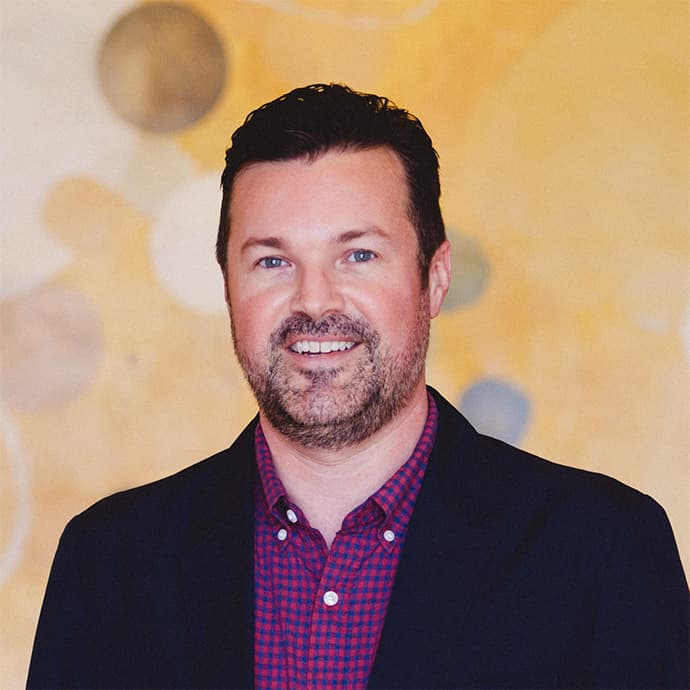LSD Withdrawal: Signs, Symptoms & Treatment



Leah Miller is a mental health counselor and is trained as an alcohol and substance abuse counselor. Her clinical experience has included inpatient and outpatient treatment, and severe mental illness in residential and community settings.

Dr. Scot Thomas received his medical degree from the University of California, San Diego School of Medicine. During his medical studies, Dr. Thomas saw firsthand the multitude of lives impacted by struggles with substance abuse and addiction, motivating him to seek a clinical psychiatry preceptorship at the San Diego VA Hospital’s Inpatient Alcohol and Drug Treatment Program.




Leah Miller is a mental health counselor and is trained as an alcohol and substance abuse counselor. Her clinical experience has included inpatient and outpatient treatment, and severe mental illness in residential and community settings.

Dr. Scot Thomas received his medical degree from the University of California, San Diego School of Medicine. During his medical studies, Dr. Thomas saw firsthand the multitude of lives impacted by struggles with substance abuse and addiction, motivating him to seek a clinical psychiatry preceptorship at the San Diego VA Hospital’s Inpatient Alcohol and Drug Treatment Program.
Table of Contents
Lysergic acid diethylamide (LSD) or “acid” is a potent hallucinogen, manufactured as an illicit street drug. Even in small doses, LSD can have long-lasting effects on sensory perception, seriously impairing a person’s level of functioning.Quitting LSD can be challenging, learn how to make it through acid withdrawal below.
LSD Withdrawal Symptoms and Side Effects
LSD doesn’t cause physiological dependence, as such the withdrawal symptoms of LSD are typically not physical. The drug acts on different areas of the brain than other common addictive drugs, such as heroin and cocaine.1,2 However, tolerance to the drug develops rapidly and requires you to take more and more LSD to get the same effect. 1,2 This is dangerous due to the unpredictable effects of LSD.
While physical dependence does not occur with LSD, some people become psychologically addicted to the drug and feel compelled to use LSD regularly, even when it is causing problems in their lives.
In addition, people who use LSD are often “poly-substance” users. They may abuse multiple drugs either simultaneously or at different times than they use LSD. 2, 5 If a poly-substance user quits using LSD while also stopping the use of a physically addictive drug, such as cocaine, the person will still experience withdrawal symptoms from the physically addictive drug.
Is It Dangerous To Stop LSD Cold Turkey?
Although an LSD user will likely not experience physical acid withdrawal symptoms upon quitting, many seek professional detox programs to provide a safe, comfortable start to substance abuse treatment rather than trying to quit “cold turkey.”
LSD users and poly-substance users often have a higher rate of mental illnesses – including depression, anxiety and schizophrenia – than the general population. 3,5 Hallucinogen users are disproportionately represented in psychiatric inpatient facilities, 2 suggesting that people who use LSD are more likely to have major mental illnesses.
Left untreated, these mental illnesses can complicate LSD recovery. A person may self-medicate with additional drug or alcohol abuse or experience suicidal thoughts and potentially harm themselves. Entering a formal treatment program for LSD can help to prevent some of these dangers and offer a solid chance for long-term sobriety.
How to Help Someone with an Addiction Quit
If you care about someone who is addicted to LSD or other drugs, the way you approach them is critical. If you make the person feel defensive, it could lead to an argument or the person shutting you out of his or her life.
Approach them from a genuine place of care and concern, rather than being angry, judgmental or confrontational. To do this, you may:
- Use “I” messages about how the person’s drug use has affected you, rather than blaming or shaming the individual.
- Tell them that you care and offer support through all stages of recovery, no matter how difficult it might be.
- Provide resources for hope, including articles about treatment options and the recovery process.
- Encourage your loved one to enter treatment.
Tips for Quitting LSD
To quit LSD, you must first develop the motivation to stop using the drug. Some strategies to increase motivation include:
- Making a list of the pros and cons of continuing LSD use.
- Talking to family and friends about how your LSD use has affected them.
- Writing down the ways that LSD is causing harm.
Stopping LSD use is only the first step to recovery. To avoid an LSD relapse and maintain sobriety from the drug, one must take active steps to create a healthy and fulfilling lifestyle without drug use. These actions may include:
- Quitting all drug use.
- Finding new hobbies and other ways to spend your time.
- Building a sober network of family and friends.
- Joining a support group.
- Following a comprehensive aftercare plan, which may include ongoing individual therapy or psychiatric care.
Can You Get Flashbacks From Using LSD?
Yes. Flashbacks are the re-experiencing of a hallucinogenic encounter in the absence of the drug. Flashbacks are more likely to occur in people who use LSD frequently and in people with a history of psychological problems. 1,2
Flashbacks can occur without warning and may be pleasant or extremely jarring. For some people, repeated flashbacks cause significant distress and impairment in social and occupational functioning, a condition called hallucinogen persisting perception disorder. 1
Why Do People Commit Suicide While on LSD?
The hallucinogenic experience on LSD can be labeled a “good trip,” which is generally a pleasant experience, or a “bad trip,” which can be terrifying. The type of trip a person will experience is extremely unpredictable and may vary each time a person uses LSD.
In the case of a bad trip, a person may feel acute anxiety and experience severe, terrifying thoughts of losing control, going insane or dying. 6 During a bad trip, a person may act violently and irrationally and could injure or even kill themselves or others. In addition, a person under the influence of LSD may experience grand delusions in which he engages in unsafe activities, such as jumping off a building because he thinks he can fly. 2
What Are the Long-Term Effects of LSD?
The long-term effects of LSD include:
- Flashbacks.
- Hallucinogen persisting perception disorder.
- Persisting signs of psychosis.
In long-standing, heavy LSD users, some signs of psychosis may persist long after their last use of LSD. These include visual disturbances, disorganized thinking, paranoia and mood disturbances. 1
Types of LSD Treatment
LSD is the most potent of the commonly abused hallucinogenic drugs. It causes profound distortions in a user’s perception of reality.1,2 While LSD addiction is not common, people who use LSD are more likely to abuse other drugs and to struggle with concurrent mental health issues. 2 These factors put them at higher risk for complications that require treatment.
Those abusing LSD – especially in conjunction with mental health problems or abuse of other drugs – may benefit from professional substance abuse treatment. Treatment can help you understand the underlying causes of your addiction while managing any serious medical or mental health problems.
Specific treatment approaches will vary. For example, those with poly-substance abuse issues and/or dual diagnosis mental health concerns can pursue specialized treatment to address those issues at the same time. 3
Options for treatment include:
- Inpatient or residential treatment, in which you live at a drug treatment center for a period of a few weeks to several months. Most of the day is spent engaging in activities to treat addiction and mental or behavioral health disorders, including individual therapy, group therapy and aftercare/relapse prevention planning.
- Outpatient treatment ranges from an hour a week of individual or group therapy to intensive day treatment programs, in which you attend a treatment facility for up to 8 hours per day. Outpatient LSD rehab may include individual therapy, group counseling and psychiatric assessment and treatment.
- Group counseling is often used in substance abuse treatment because people who abuse LSD and other drugs can benefit from supporting and learning from others. Groups used in substance abuse treatment include psycho-educational groups, skills development groups, cognitive behavioral/problem-solving groups, support groups and interpersonal process groups. 4
- Individual therapy, in which you meet one-on-one with a therapist, is an important component of addiction treatment. Individual therapy can help you develop insight into your drug addiction, strengthen your motivation to change, treat any co-occurring mental health problems and help you develop a plan to avoid relapse.
- 12-step support groups, such as Alcoholics Anonymous and Narcotics Anonymous, are not a replacement for treatment. But they can be a helpful complement to treatment and an important part of an aftercare plan.
The right treatment will depend on:
- The length and severity of your LSD use.
- Whether you’re dependent on other drugs.
- The presence of a dual diagnosis or concurrent mental or behavioral health issue.
Generally, if you’ve been using LSD for a long time, abuse other drugs and suspect you may have mental health problems, inpatient is the best option.
Continue Your Recovery With Aftercare
Following treatment, it is important that you prepare and follow a comprehensive aftercare plan to avoid relapsing on LSD or other drugs. An aftercare plan is usually developed when you are in treatment. Aftercare services can help you manage the areas of your life that were affected by your drug use.
This may include:
- Ongoing individual therapy and/or psychiatric treatment, to continue to address root causes of addiction or mental health problems.
- Family therapy, to focus on family dynamics that may contribute to your addiction.
- Transitional communities, in which you can reside in astructured sober living home until you feel comfortable moving into regular housing.
- Career support, including vocational training and help with a job search.
- Financial education, to help you manage your finances effectively and avoid spending money on drugs.
- Pro-social community involvement, to help you become engaged in positive activities and hobbies with sober peers.
- Support groups such as Alcoholics Anonymous and Narcotics Anonymous.
Recovery may seem daunting, but effective help is available. Explore residential drug rehabs or specialized alcohol addiction treatment programs to find the right environment for healing. Use our free tool to search for addiction treatment by insurance, location, and amenities now.
FAQs
-
National Institute on Drug Abuse. (2015). Hallucinogens and Dissociative Drugs: Research Report Series. Available at: https://d14rmgtrwzf5a.cloudfront.net/sites/default/files/hallucinogensrrs4.pdf.
-
National Institute on Drug Abuse. (2010). Comorbidity: Addiction and Other Mental Illnesses: Research Report Series. Available at: https://d14rmgtrwzf5a.cloudfront.net/sites/default/files/rrcomorbidity.pdf
-
Center for Substance Abuse Treatment. (2005). Substance Abuse Treatment: Group Therapy (Treatment Improvement Protocol (TIP) Series, No. 41). Rockville, MD: Substance Abuse and Mental Health Services Administration. Available at: http://www.ncbi.nlm.nih.gov/books/NBK64220/. https://www.ncbi.nlm.nih.gov/books/NBK64220/
-
Connor, J., Gullo, M. J., White, A., Kelly, A. (2014). Poly-substance Use: Diagnostic Challenges, Patterns of Use and Health. Curr Opin Psychiatry. 27(4):269-275. Available at: http://www.medscape.com/viewarticle/826373_4. https://www.medscape.com/viewarticle/826373_4
-
National Institute on Drug Abuse. (2014). DrugFacts: Hallucinogens – LSD, Peyote, Psilocybin, and PCP. Available at: http://www.drugabuse.gov/publications/drugfacts/hallucinogens-lsd-peyote-psilocybin-pcp. https://www.drugabuse.gov/publications/drugfacts/hallucinogens
Our Promise
How Is Recovery.com Different?
We believe everyone deserves access to accurate, unbiased information about mental health and recovery. That’s why we have a comprehensive set of treatment providers and don't charge for inclusion. Any center that meets our criteria can list for free. We do not and have never accepted fees for referring someone to a particular center. Providers who advertise with us must be verified by our Research Team and we clearly mark their status as advertisers.
Our goal is to help you choose the best path for your recovery. That begins with information you can trust.









